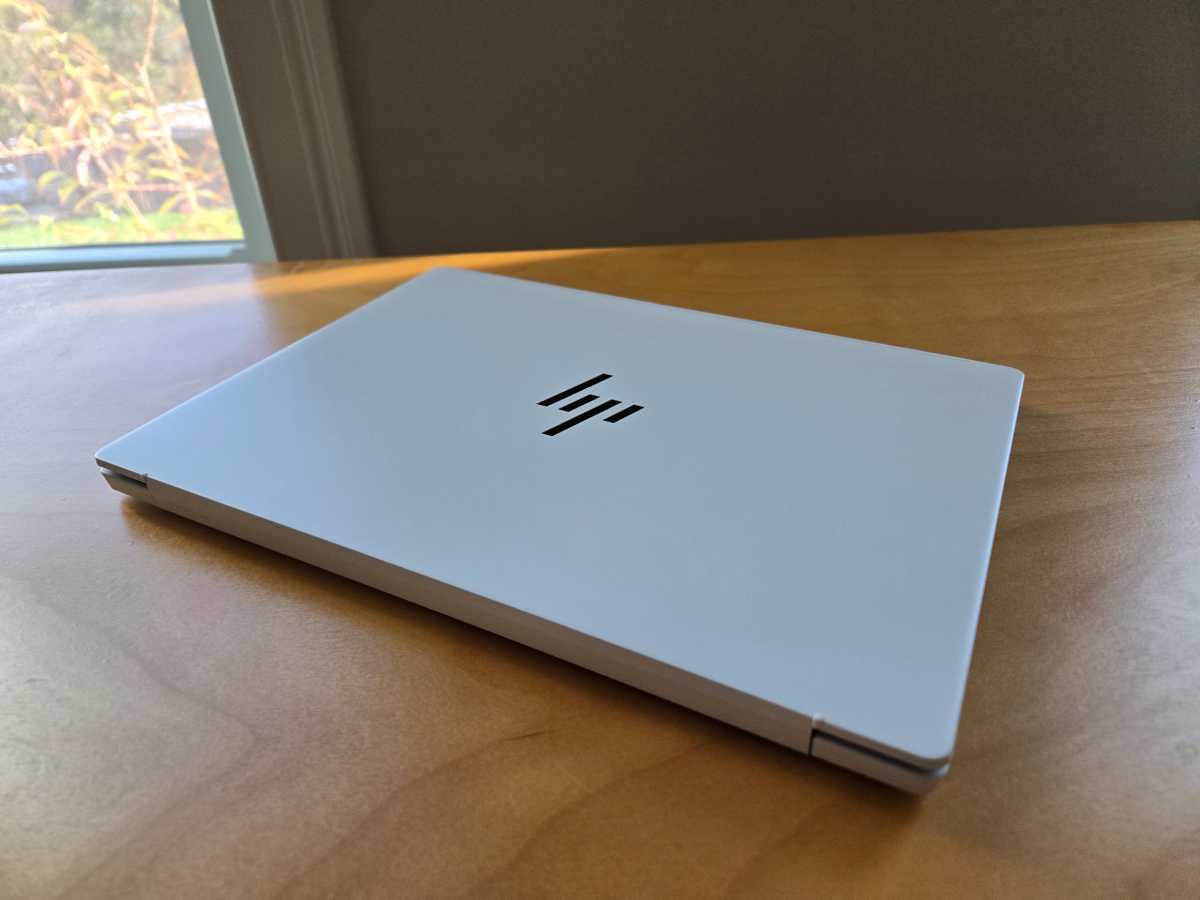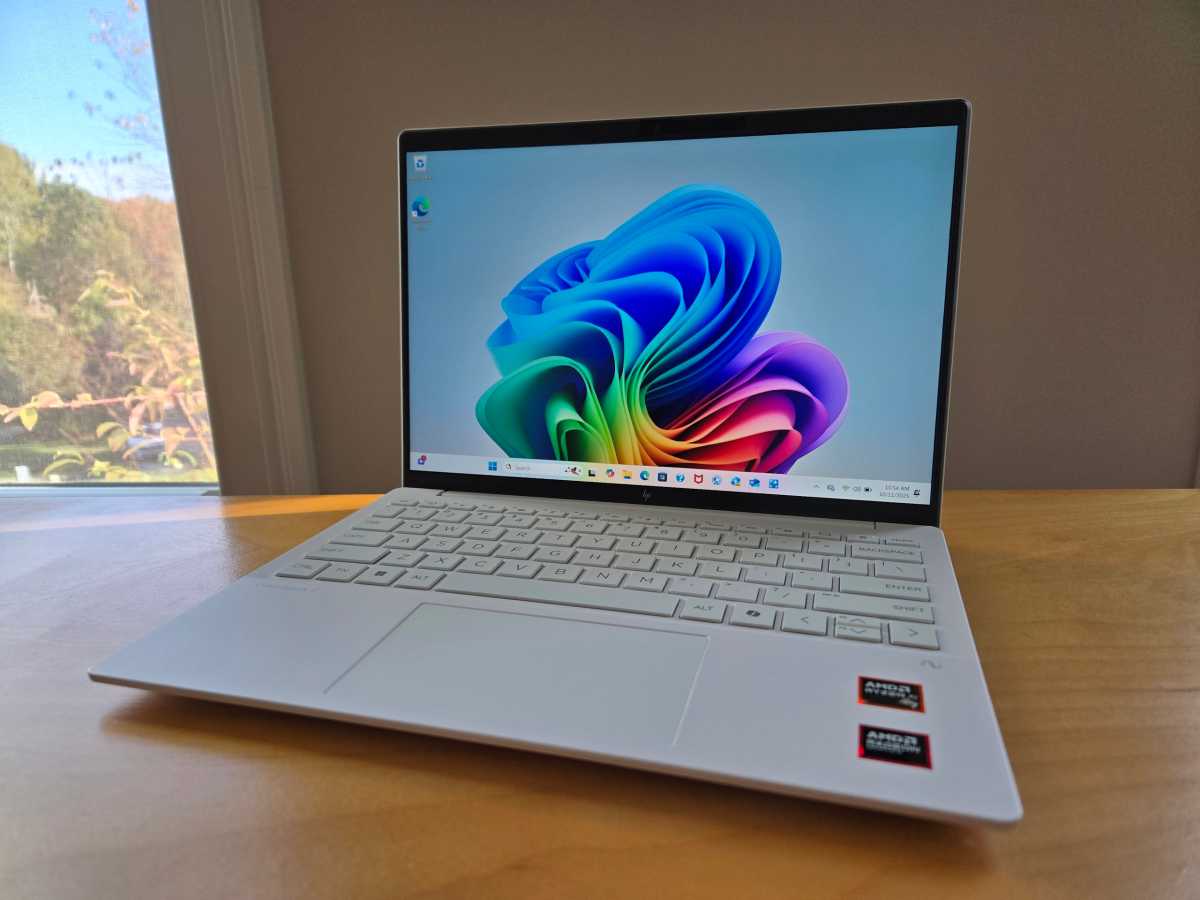The HP OmniBook 7 Aero isn’t just a laptop; it’s a statement. Weighing in at a mere 2.2 pounds, this ultraportable feels sculpted for movement, a seamless extension of your on-the-go lifestyle. Its pristine white, all-metal design immediately commands attention, a refreshing departure from the sea of silver laptops crowding the market.
Holding it is an experience in itself. The magnesium-aluminum alloy chassis feels remarkably premium, with a subtly textured surface that’s both secure and comfortable. It’s a machine that invites you to pick it up, to carry it effortlessly, to work from anywhere without a second thought.
However, beneath the stunning exterior lies a critical compromise. HP paired a capable AMD Ryzen AI 7 processor with an unusually small battery. This decision, likely made to maintain the incredibly light weight, results in a frustrating limitation: you’ll be constantly aware of the need for an outlet.

The OmniBook 7 Aero’s internal components are impressive on paper. The eight-core AMD Ryzen AI 7 350 chip, coupled with Radeon 860M graphics and a dedicated Neural Processing Unit (NPU), delivers a solid blend of performance and responsiveness. Our review unit boasted a generous 32GB of RAM and a lightning-fast 1TB SSD – more than enough for demanding tasks.
In real-world use, the laptop excels at everyday productivity. Web browsing, document editing, and communication apps run smoothly and efficiently. The machine remains remarkably cool and quiet, even under moderate loads. It’s a testament to the engineering that allows such performance in such a compact form factor.
But the Achilles’ heel remains the battery. During our testing, the 43 Watt-hour battery lasted approximately ten and a half hours while playing a 4K video. While respectable, this falls significantly short of competitors powered by Intel’s Lunar Lake or Qualcomm’s Snapdragon X platforms, which can often double that runtime.

The 13.3-inch IPS display is another highlight. With a sharp 2560x1600 resolution and a bright, anti-glare surface, it’s a pleasure to use in any lighting condition. Colors are vibrant, and text is crisp, making it ideal for both work and entertainment.
The keyboard, while comfortable, features slightly shallow key travel – a common trade-off in ultraportable designs. The trackpad is responsive and accurate, providing a smooth and intuitive navigation experience. A physical webcam shutter adds a welcome layer of privacy.
Connectivity is adequate, with a selection of USB-A and USB-C ports, as well as an HDMI 2.1 output. However, the absence of Thunderbolt 4 or a microSD card reader may require dongles for some users. Wi-Fi 6 support, while functional, feels slightly dated compared to the newer Wi-Fi 6E and 7 standards.

The OmniBook 7 Aero’s performance in benchmark tests was solid, particularly in multithreaded tasks. It outperformed some Intel-based competitors, showcasing the strength of the AMD Ryzen AI 7 processor. However, its graphics performance lagged behind, making it less suitable for demanding gaming or content creation.
Ultimately, the HP OmniBook 7 Aero is a beautifully designed and well-built ultraportable laptop. It’s a joy to use and carry, offering a premium experience in a remarkably lightweight package. But the compromised battery life is a significant drawback, limiting its true potential.
If you prioritize portability above all else and consistently have access to power, the OmniBook 7 Aero is a compelling choice. However, for those seeking all-day battery life, exploring alternatives with larger batteries and more power-efficient processors is highly recommended.







